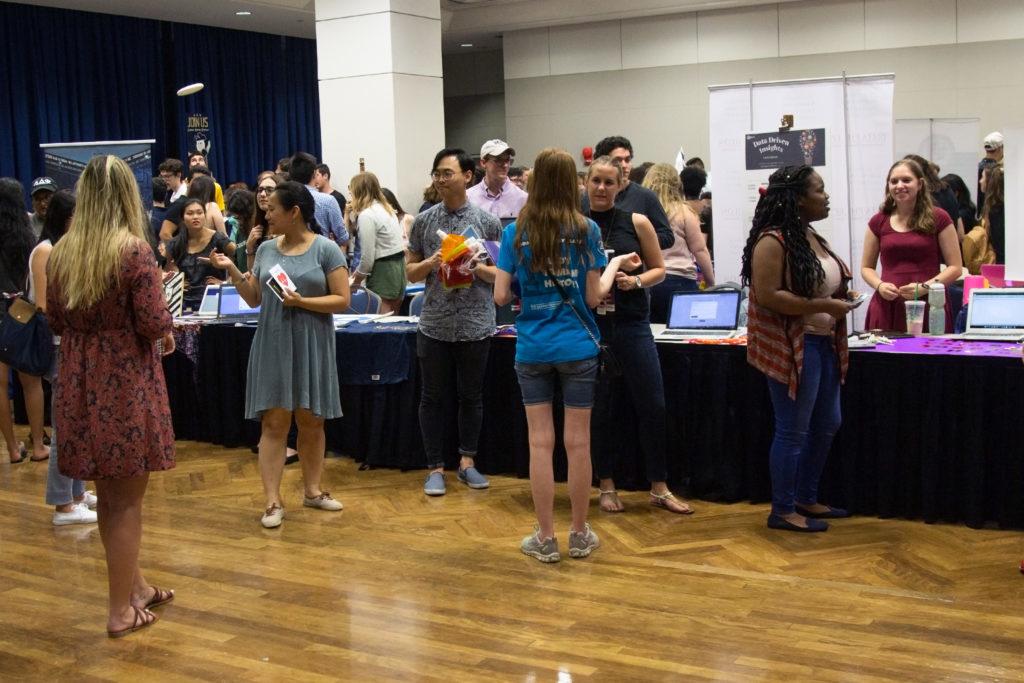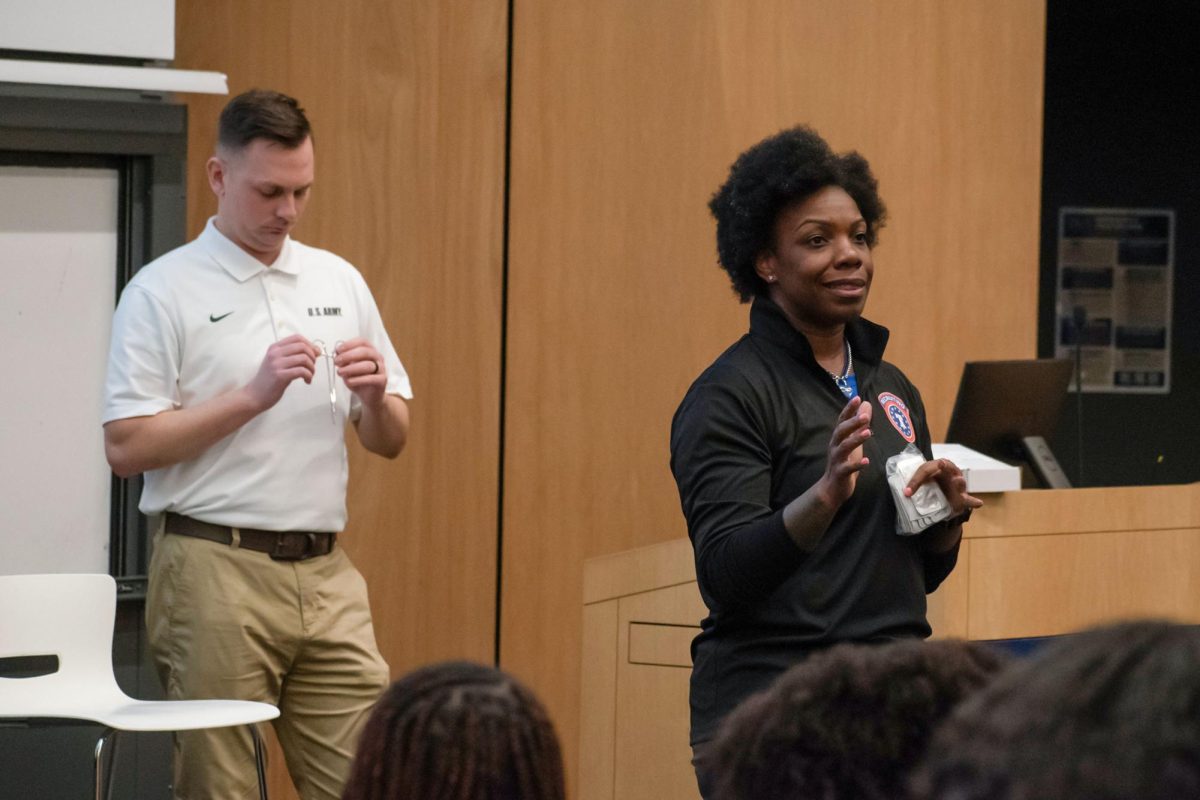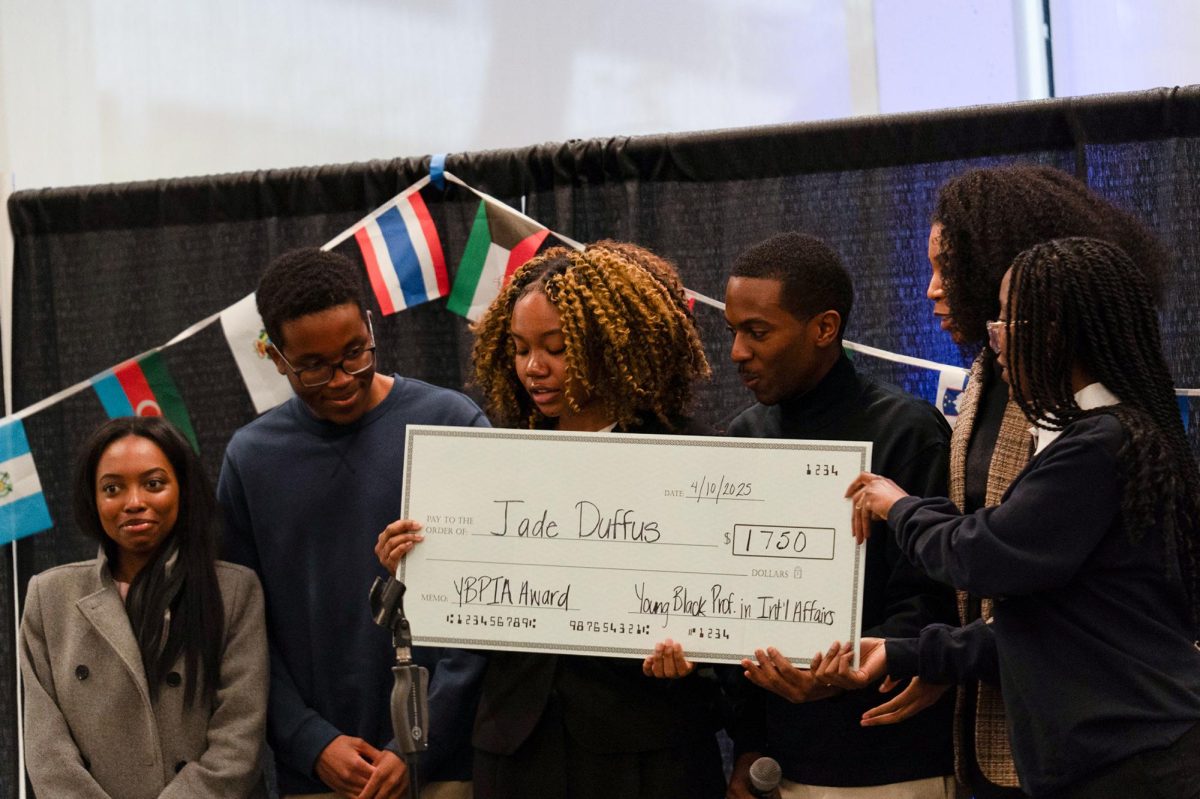As the fall semester gets underway, GW’s more than 450 student organizations are learning to navigate the remote semester and adapt to new methods of outreach, programming and community building entirely online.
In interviews, more than 10 student organization leaders said they were relying “heavily” on social media to recruit new members, especially students from the Class of 2024. Student leaders said in lieu of in-person programming, the virtual setting has prompted them to shift to online platforms like Zoom for general body meetings and up collaboration with similar student groups or outside organizations to engage members.
Recruiting students online
In interviews, 12 student leaders said they’ve signed up for the virtual organization fair but have relied more heavily on social media marketing to amp up their online outreach efforts.
The virtual student organization fair will be hosted on Sept. 5, 6 and 13, according to the Division for Student Affairs website. Students can reserve their spot ahead of time at one of the five WebEx events grouped by organizations’ focuses like academics, recreation and culture.
Sophomore Sophie Gengler, a student leader with Sunrise GW, said she was personally drawn to Sunrise after she joined a Sunrise D.C. protest that shut down a city intersection in September protesting fossil fuel divestment. She said virtual recruitment won’t fully convey the group’s “passions and abilities” as an activist student organization, but the group will continue to recruit new members by involving them in phone banking and voting pushes.
“With the upcoming election, GW students will hopefully be seeking politically active communities to feel a part of and jump into, and we hope to provide a supportive community for that,” Gengler said. “One where first-years can learn the ropes of the Sunrise movement.”
Junior Louie Kahn, the president of GW College Democrats, said GWCD created a Facebook group for the Class of 2024 as a way for students to connect and talk to fellow Democrats. He said GWCD plans to send text reminders about virtual events, meetings and new information about the group at least twice a week to students who sign up for a Remind 101 text banking system.
He said the remote semester has forced the organization to shift its in-person activities like committee meetings and watch parties to online services like Zoom, but with the election year ahead, the group’s leaders do not plan to cancel any of their events outside of in-person canvassing. He said the organization eliminated members’ dues for the semester, so events like their election night and debate watch parties are open to anyone.
“We’re hoping to engage students as much as possible in our organization and make their GW experience as worthwhile as possible, even though we are all not on campus,” Kahn said.
Seniors Jonathan Lehrfeld and Liat Wasserman, the co-presidents of the Jewish Student Association, said the group hosts Launchpad, an early orientation program for freshmen students, before the start of the academic year but needed to shift online for the first time. The pair said they tried to make the program interactive to engage students, like holding small icebreaker group discussions and online cooking classes.
“We are constantly brainstorming and building on our different programming and learning opportunities for all students, including our incoming first-years,” Lehrfeld and Wasserman said in an email. “Many of these programs will give a platform for first-year students to engage one-on-one with each other and develop meaningful relationships.”
Collaboration between student organizations
Student leaders are also expanding the way they engage with other student organizations as a means of recruitment and engagement.
Senior Josh Kutner, the chair of GW College Republicans, said the student organization plans to host events like phone banking for candidates and Zoom talks with politicians to ensure students are getting the “GW experience” from afar. He said he plans to collaborate with smaller right-wing organizations like Young America’s Foundation to ensure those organizations have opportunities to continue operations.
“We’re lucky in that we have a large base of members and a budget allocated for speakers and that sort of thing,” he said. “But for smaller organizations, it might be a little bit tougher to front the money for a Zoom premium plan and that sort of thing.”
Senior Aedy Miller, the president of Trans Non Binary Students at GW, said they spoke at various panels during the virtual New Student Orientation on attending GW as a transgender non-binary student and promoting student organizations like TNBS. Miller said the group’s programming will focus on providing “consistent” spaces for students to talk with each other and bond like weekly study halls on the TNBS Discord server, an online messaging platform.
They added that the group plans to engage in “distance advocacy” through collaborating with the Gay-Straight Alliance Network in the DMV to talk with LGBTQ youth about their own experiences growing up.
“One thing that we wanted to do since the org’s founding was to work with GSAs in the DMV to show younger kids that you do get to grow up and be trans,” Miller said. “You do get to be queer and get to go to college and have these cool experiences.”








